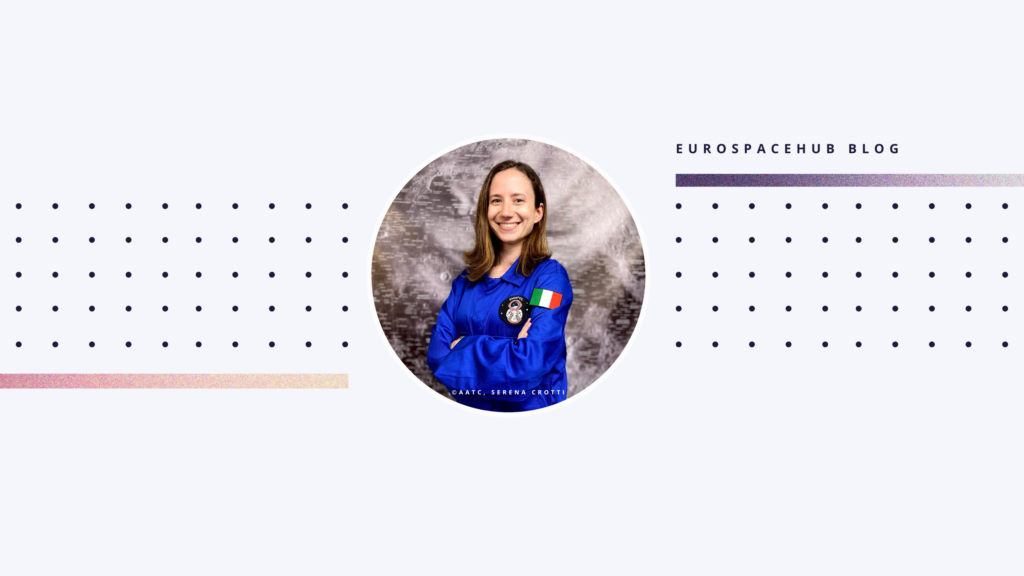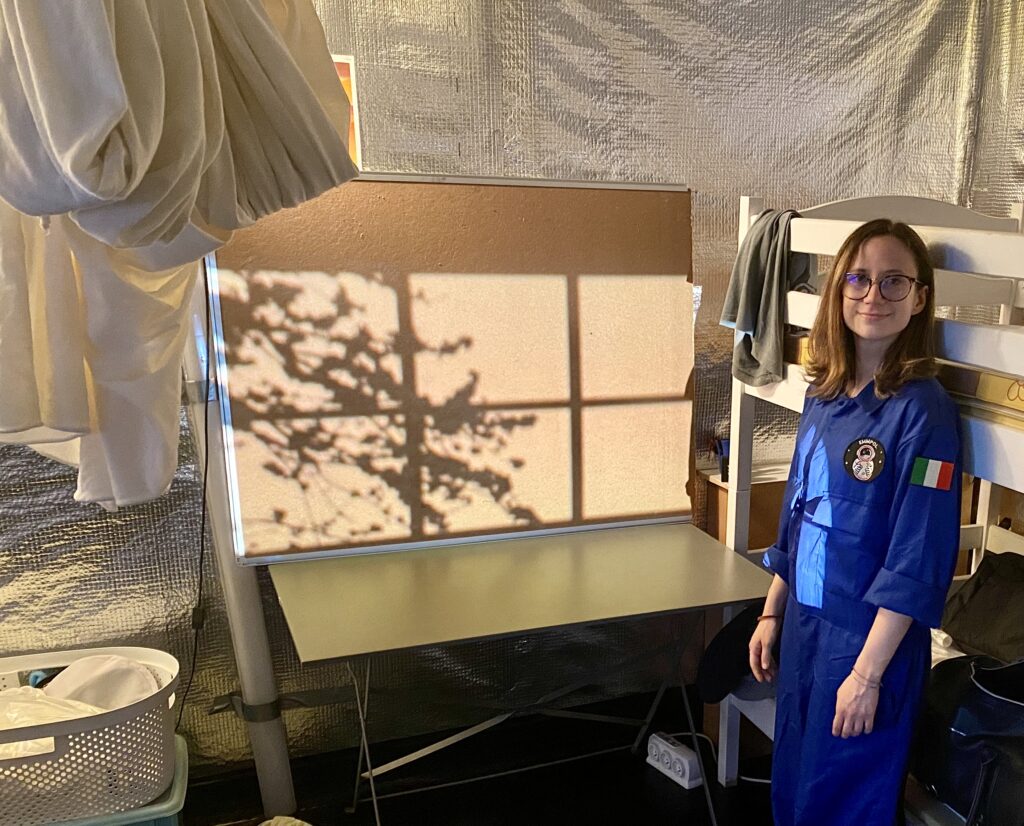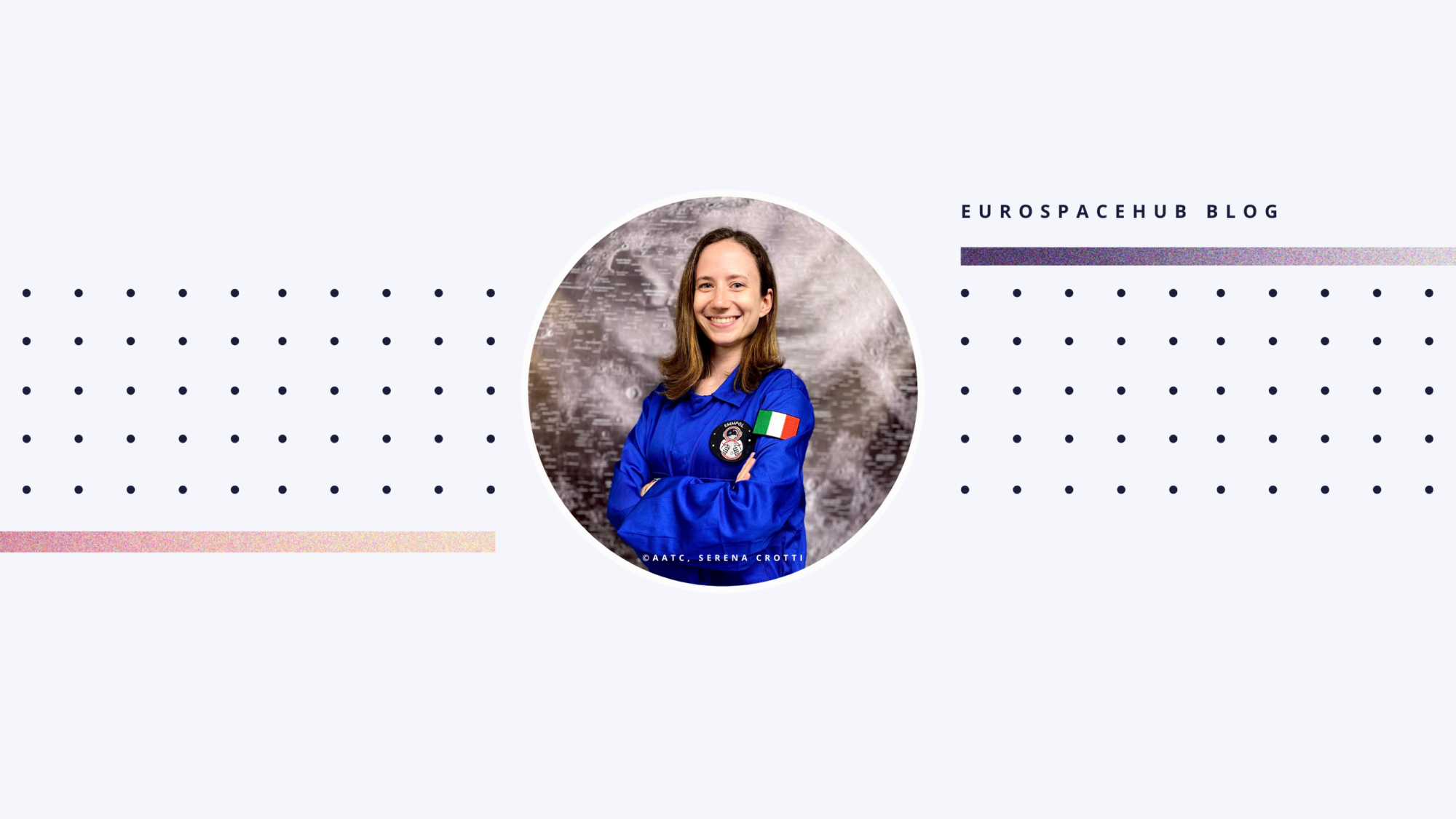
This month we made a special podcast: an interview with some of the ground-based astronauts from the EMMPOL missions. Therefore, I would like to share with you some reflections on the experience I was able to live myself during the EMMPOL 8 mission, thanks to Lunex EuroMoonMars and to the Analog Astronaut Training Center. I would like to briefly shed some light on the skills and abilities I was able to develop thanks to the mission. Spending a week on a moon base indeed teaches you many technical aspects and allows you to learn many scientific notions in the field. However, there is one aspect that is equally important and yet is often under-reported.

As the only woman in the mission, I cannot hide that my concern was high before entering the habitat. I had many doubts and felt lonely. I was lucky: my crew proved to be excellent. There was no lack of challenges during the week, but each of us made an effort to cooperate and help the others. We learnt that sharing our emotions is a winning strategy to optimize performance
Serena Crotti
EMMPOL 8 Vice Commander & Communication Officer
This aspect relates to the soft and transversal skills that such an experience teaches those who go through it. These skills are both personal as well as related to one’s ability to be in the group and to live in relationships. When I think back to my mission – which took place in September 2021 for the duration of one week – I recognize that it was a decisive moment for my professional career and personal attitude. In the days before the mission you already start learning: you are required to take the risk, to trust the Mission Control, to find the courage to dare! And at the same time you learn the technical and practical aspects, you study the mission manual, you study the protocols and develop the procedures for your experiments. You learn that there are no “wrong” questions and that in case of doubts it is okay to ask: you improve your communication skills and you learn to focus on the important things. Your ability to handle stress comes into play and you prepare to hit the field.
Then the time comes for the mission. Roles are assigned and your responsibilities gradually become clearer. You meet the crew: total strangers that for the following week will live with you a thousand adventures and misadventures, in a very small space. As the only woman in the mission, I cannot hide that my concern was high before entering the habitat. I had many doubts and felt lonely. I was lucky: my crew proved to be excellent. There was no lack of challenges during the week, but each of us made an effort to cooperate and help the others. We learnt that sharing our emotions is a winning strategy to maximize performance in the work environment: if you share a worry, its intensity is halved; but if you share a moment of joy, its intensity is doubled! These were intense days, certainly, but also valuable ones for learning and for conducting our experiments as young researchers. In my case, it was an incredible experience that I was able to use in my MSc thesis work and that I am very thankful to have done. Analog missions are incredible opportunities to grow professionally and personally, to enrich one’s resume, and to develop one’s skills. If you are a young person in aerospace or even just someone curious about trying a unique, out-of-the-box experience, then they are for you!
If you know already, Do you want to be the first to know when our EuroSpaceHub digital platform is live?
You will find a repository of space research results, projects and space startups and industry leaders. If you enter the EuroSpaceHub, you will enter a new level of collaborative mindset.

